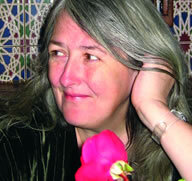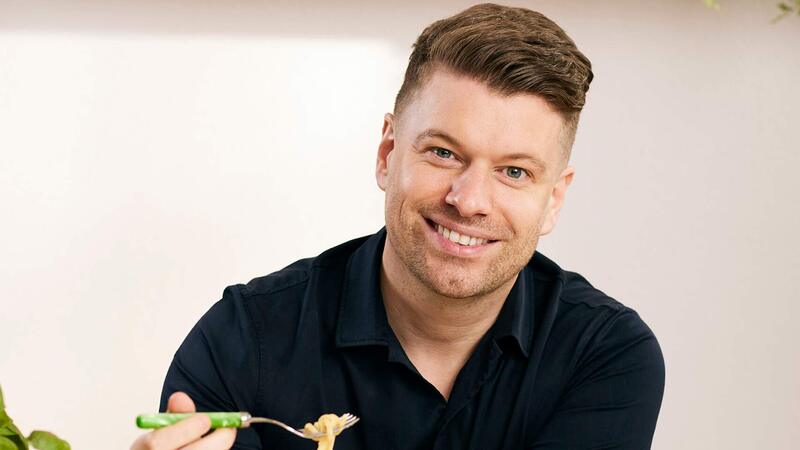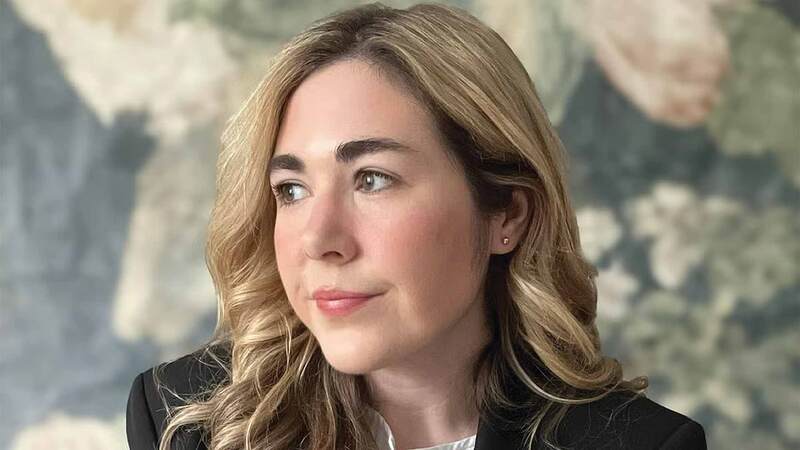You are viewing your 1 free article this month. Login to read more articles.
Mary Beard | "Not every kid is going to benefit from learning Latin. But I would like every child to learn something about the classical world"

Caroline Sanderson is a non-fiction writer, editor and books journalist. Her books include a travel narrative, A Rambling Fancy: in the F ...more
 Caroline Sanderson
Caroline SandersonCaroline Sanderson is a non-fiction writer, editor and books journalist. Her books include a travel narrative, A Rambling Fancy: in the F ...more
As Mary Beard, Cambridge University's professor of classics picks up the phone; I hear the chime of her computer. She has just filed the latest instalment of "A Don's Life", her regular TLS blog. I read it later, and find her being characteristically subversive, this time about the disruption caused by the first visit of the Duke and Duchess of Cambridge to their "home" town. She also relates the other events of her packed day "for those very few readers of this blog who might be under the impression that we academics don't work hard enough".
But any worries that she will be too busy to enthuse about Confronting the Classics: Traditions, Adventures and Innovations, her forthcoming book of collected essays (Profile, March), are soon dispelled. Beard is an engaging interviewee who still radiates passion for her subject more than 50 years after she was introduced to the classical world on a trip to the British Museum, aged five. "I thought the Elgin Marbles were utterly amazing. No one had told me that two and half thousand years ago people were that clever." At school, Beard discovered an aptitude for Latin, and when she was 16, she went to her first archaeological dig at a Roman villa near Shrewsbury. "It wasn't a particularly significant site. But trowelling down and finding Roman stuff was bloody incredible."
A first degree and PhD in classics at Cambridge followed; and in 2004, Beard returned to her alma mater as professor of classics. Though she already had a growing reputation as a feisty and enthralling populariser of her subject through books such as Pompeii: The Life of a Roman Town (Profile, 2009), 2012 brought her to wide public attention, via her first TV series, "Meet the Romans with Mary Beard" on BBC2. And when A A Gill's Sunday Times review of the programme ignored its riveting content to insult Beard's refreshingly unfussy appearance instead—"for someone who looks this closely at the past, it is strange she hasn't had a closer look at herself before stepping in front of a camera"—there were universal howls of protest. The likes of Clare Balding—"Mary Beard is a heroine for us all"—and Caitlin Moran—"I love you Mary Beard tell them all to get stuffed"—rushed to her defence, and it appeared that Beard had achieved national treasure status overnight.
Beard's great virtue (besides her preference for waxing lyrical about the ancient world over dying her hair) is that she wears her erudition lightly. Worried at first that collecting her essays for Confronting the Classics would seem "self-regarding", she decided to do so in order to "help people see why the classics are still interesting, and why they are still being argued about, centuries later". The essays are accessible, witty and wide-ranging, considering such topics as: how great Alexander the Great actually was (answer: probably not very; Beard herself once described him as a "drunken juvenile thug"); what made the Greeks laugh (men with bad breath, hernias, eunuchs and egg-heads apparently); the bungled murder of Julius Caesar; the pan-European popularity of Astérix; and why Bobby Kennedy chose to quote from "Agamemnon" by Aeschylus the day after Martin Luther King was assassinated. "To me, it's self-evident that this stuff is interesting. My job is to make it interesting for others, and show how the Ancients help us to understand ourselves. You can't cut the classics out of Western culture; they are all around us. And if you don't engage with them, you miss out".
She regards the study of classics as an ongoing conversation. "It's not about saying 'if I was a real boffin, I'd know these things.' None of us really knows. It's about talking to the Ancients—ventriloquising them in a sense—to find out more. My book shows just how many things we're still trying to work out, and I suppose tries to make a case for why people like me need to be employed to do so."
Winningly evangelical about her subject she may be, but Beard is never sentimental about it. In Confronting the Classics, she mocks the somewhat gushing reaction to the discovery of a document written by the wife of an officer stationed near Hadrian's Wall inviting a friend to a birthday party: "It has launched a load of nonsense about just how like us the Romans were." But surely people in ancient times had a lot of the same preoccupations? "That's the allure of doing classics. In some senses the Greeks and Romans were like us, and in other ways, they weren't at all. If they were just like us, why would we study them? The point is, they had birthday parties like we do, but they weren't anything like ours."
Who would she most like to have been in Ancient Rome? "Oh, we all project ourselves back, and most of us imagine being someone posh. But it isn't likely. I'd probably have been an oppressed slave girl who was unwillingly interfered with by her master every night. I'd rather have been a rebel on the margins." But Beard knows far too much about Roman life not to shudder even at that prospect —"Childbirth! No aspirin! Imagine!"
Is she worried that far fewer of us are studying classics than in the past? "I do lament it a little, but I'm not an ideologue. Not every kid is going to benefit from learning Latin. But I would like every child to learn something about the classical world. Actually most of us know more about it than we think, thanks to films like 'Gladiator'. It's much easier than people think to go from the movie to the real thing."
Beard recommends the work of novelists such as Robert Harris and Lindsey Davis as a good introduction to the ancient world. As far as the writings of the Ancients themselves are concerned, she acknowledges that people are frightened of picking them up. "But they shouldn't be. They should just dive in." She defies anyone not to enjoy the Histories of Herodotus and Tacitus. "There's no better analyst of history than Tacitus. Everyone from the 1st century onwards has learned to analyse power from him." When she was a guest on Radio 4's "A Good Read", Beard chose Homer's classic The Odyssey. "You could see them balking at my choice, but it's exactly that—a good read. Plus every story we've ever told is there, right at the very beginning of Western literature."
Book data
Publication date 14/04/13
Formats HB £25/ EB £TBC
ISBNS 9781781250488/ 9781847658883
Editor Andrew Franklin
Agent Unagented
Personal File
1955 Born in Much Wenlock, Shropshire
1973-79 Studied Classics, Newnham College, University of Cambridge, followed by a PhD
1979-83 Lecturer in classics at King's College, London
1984 Lecturer in classics at Cambridge University and a Fellow of Newnham
College
1992-present classics editor of the Times Literary Supplement
2004-present professor of classics, Cambridge University
2012 writes and presents three-part TV series "Meet the Romans with Mary Beard" for BBC2
Mary Beard's Top Three
It's a Don's Life
Profile, £8.99, 9781846682513
A collection of entries from Mary Beard's TLS Blog, A Don's Life
Books sold since 2009: 5,458
All in a Don's Day
Profile, £8.99, 9781846685361
A second collection from the popular TLS blog
Books sold since 2012: 1,667
Pompeii: The Life of a Roman Town
Profile, £9.99, 9781846684715
A vibrant portrait of life in this ancient town
Books sold since 2008: 40,998








